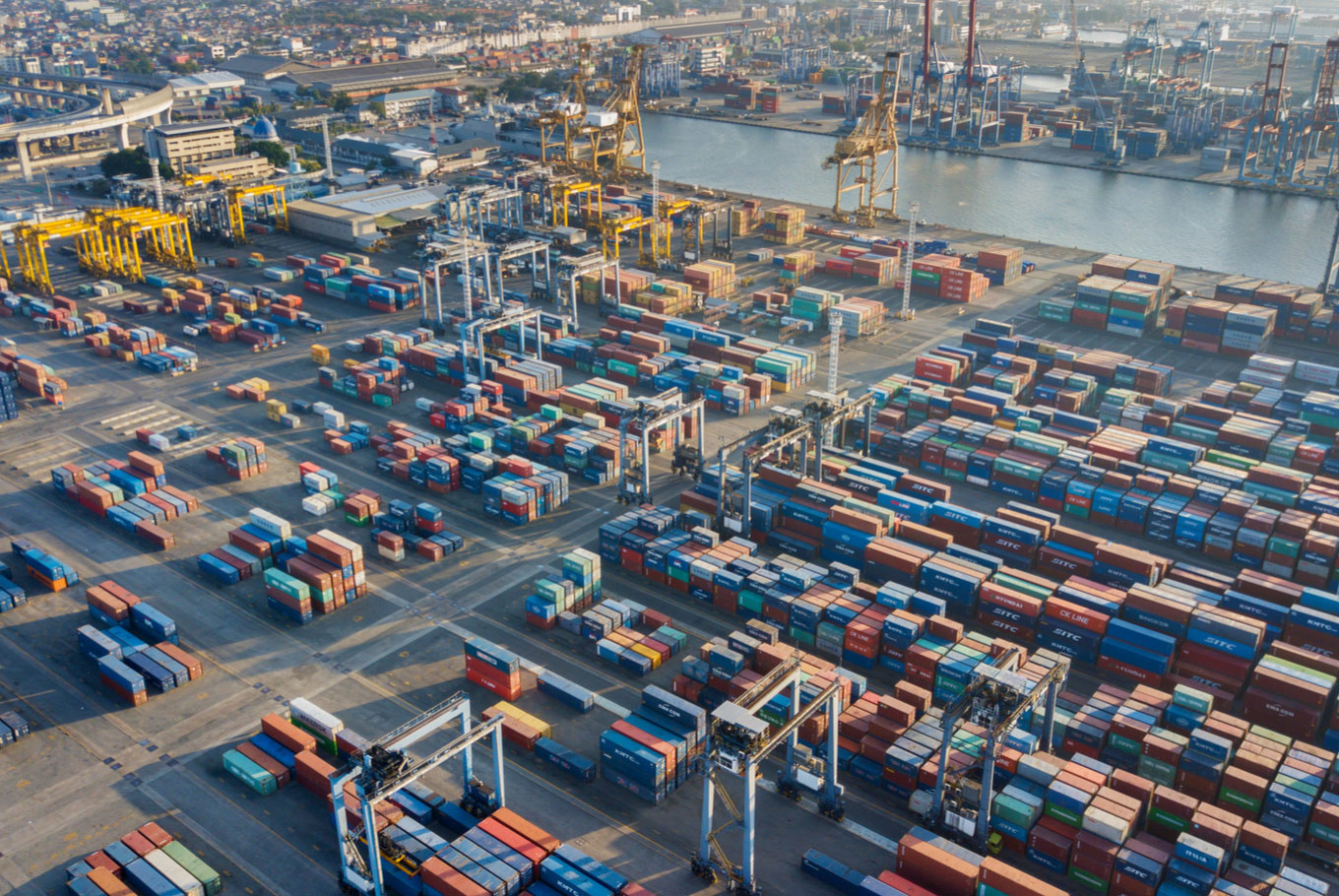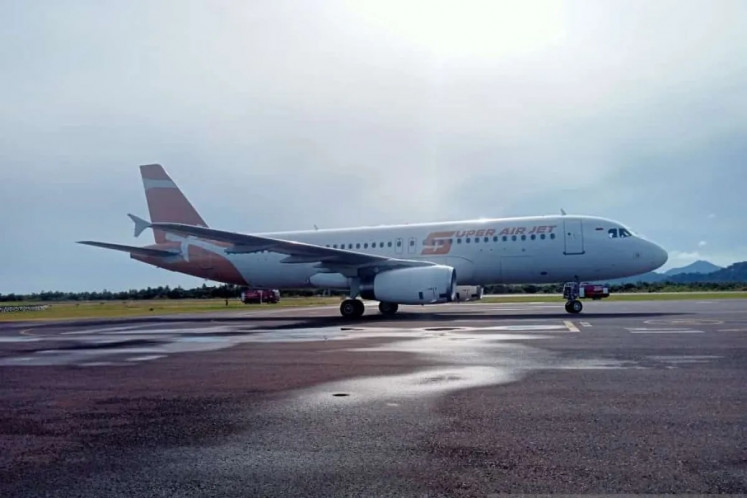Connected to global value chains
The benefits of foreign investments in port development extend beyond simply bringing in capital.
Change Size
 Industrial port of Tanjung Priok with stacks of containers. (Shutterstock.com/Creativa Images)
Industrial port of Tanjung Priok with stacks of containers. (Shutterstock.com/Creativa Images)
A
s Indonesia is an incredibly vast and diverse archipelago, sea transportation is key to facilitating the smooth distribution of goods, enhancing economic linkages between the various islands and connecting the country to global value chains.
But the harsh fact is that sea transportation has long been among the most inefficient industries in Indonesia, as most ports are poorly equipped and managed, and port handling is in shambles, making the country’s logistics costs the highest in the ASEAN region.
Set against this condition, the one-day international seminar on Indonesia’s global maritime fulcrum here on Thursday fits well with President Joko “Jokowi” Widodo’s top priority in infrastructure development.
The government will be able to learn about the business models and best practices of port development and management from discussions with senior executive officers of the World Bank, Asian Development Bank, Asian Infrastructure Investment Bank, the Port of Rotterdam and Oman global logistics group ASYAD.
Since taking office in 2014, President Jokowi has placed sea transportation among the top of his infrastructure development programs. He started with Jakarta’s international seaport of Tanjung Priok, which handles almost 70 percent of Indonesia’s imports, by ordering officials to cut the dwelling time of freights — the length of time a cargo sits in a terminal’s in-transit storage area — from six to less than three days.
He launched in 2015 a maritime highway transportation program to connect Tanjung Priok port in Jakarta and Tanjung Perak port in Surabaya, East Java, with major ports in the eastern region (Maluku and Papua) and in the Riau Islands near Singapore. But not much progress has been made because of poor inter-ministerial cooperation and coordination.
As Jokowi himself was formerly a furniture exporter, he should have painfully noticed how foreign shipping companies tended to impose punitively high terminal-handling charges on containers bound into or out of Indonesia. The surcharges reflected the gross inefficiency at Indonesian seaports. From the first gate of entry into the port to docks and even in the waters of the harbor itself, illegal levies seem to arise everywhere, thereby making port-handling costs in Indonesia almost double those in other ASEAN countries.
In 2016, Jokowi opened port development and port operations wider to foreign investors under a public and private partnership concept, but not many companies seem interested, apparently because of the tough terms and conditions of the contract.
The government should realize that the biggest benefit derived from seaports and efficient sea transportation is not the direct profit from core port operations themselves, but a smooth, efficient flow of goods that contributes to strengthening the overall competitiveness of the economy.
The benefits of foreign investments in port development extend beyond simply bringing in capital. With adequate regulations, they can be guided to confer technical know-how, managerial and organizational skills to domestic businesses and professionals, and to transform sea transportation into an efficient service industry.








